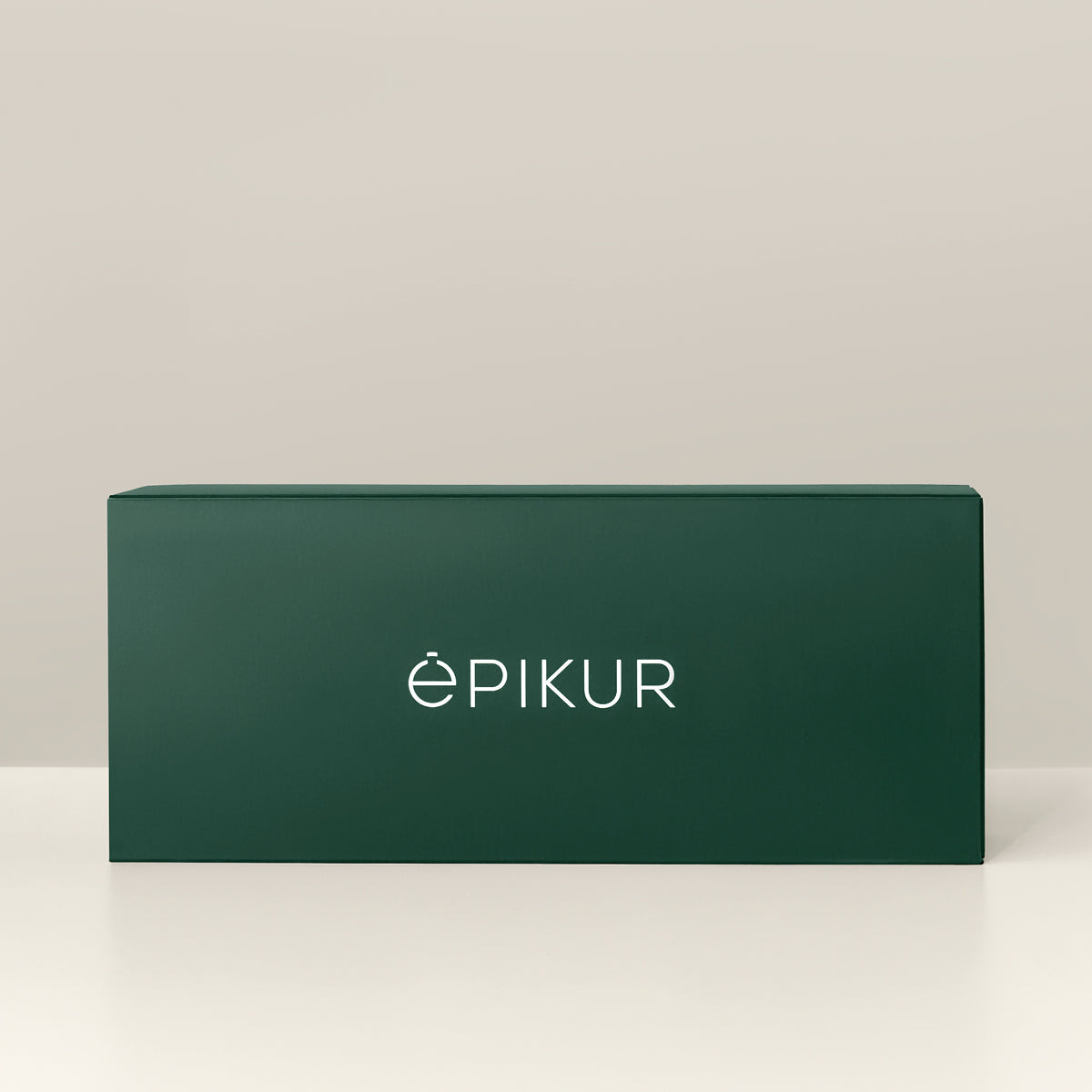epikur ingredients
Coconut flour
Coconut flour is a byproduct of coconut processing. It is made from the defatted and dried flesh (copra) of the coconut, which is finely ground after the coconut oil has been extracted. The result is a nutty-scented, gluten-free flour that is traditionally produced in tropical countries such as the Philippines, Indonesia, and Sri Lanka and is increasingly gaining popularity worldwide—particularly in gluten-free and low-carb diets.
General effects of coconut flour
Coconut flour has numerous health benefits, particularly due to its high fiber content and healthy fats:
- Gluten-free: An excellent alternative for people with celiac disease or gluten intolerance.
- Satiety: Fiber and protein promote a long-lasting feeling of satiety, which can help with weight control.
- Blood sugar regulation: Coconut flour has a low glycemic index and can help prevent blood sugar spikes after meals.
- Heart health: The MCTs contained promote a healthy cholesterol profile by increasing the “good” HDL cholesterol.
- Versatile: Coconut flour is suitable for low-carb and ketogenic diets as well as for people who want to reduce carbohydrates.
Effect of coconut flour on the intestines
Coconut flour has a significant effect on intestinal health in particular:
- Promotes digestion: The extremely high fiber content (around 3-4 times higher than in wheat flour) can stimulate intestinal movement and can counteract constipation.
- Supports intestinal flora: Fiber from coconut flour acts as a prebiotic and can promote the growth of healthy intestinal bacteria.
- Regulation of intestinal activity: The insoluble fiber in coconut flour binds water in the digestive tract, which can contribute to improved stool consistency.
- Anti-inflammatory: The medium-chain fatty acids (MCTs) in the fat content of coconut flour can have anti-inflammatory effects and can promote the health of the intestinal mucosa.
- Protection against colon diseases: A fiber-rich diet with coconut flour can reduce the risk of diseases such as diverticulitis and colon cancer.
epikur Trilogy
For your intestinal health.
References
Trinidad TP, Valdez DH, Loyola AS, et al. (2006). Coconut flour supplementation improves lipid profile and fasting blood glucose among patients with hypercholesterolemia . Philippine Journal of Science, 135(1), 11-22.
Nevin, KG, & Rajamohan, T. (2006). Virgin coconut oil supplemented diet increases the antioxidant status in rats . Food Chemistry, 99(2), 260–266.
Wolever, T.M.S., & Jenkins, DJA (1986). The use of the glycemic index in predicting the blood glucose response to mixed meals . American Journal of Clinical Nutrition, 43(1), 167-172.
Capriles, VD, & Arêas, JAG (2014). Functional properties of gluten-free flours: A focus on pseudo cereals and legumes . Comprehensive Reviews in Food Science and Food Safety, 13(3), 402–423.





